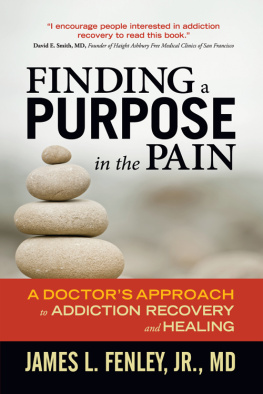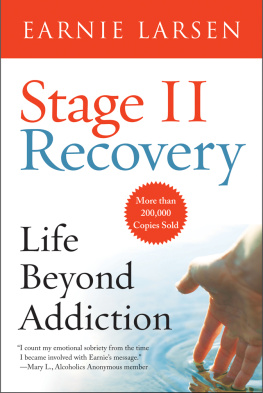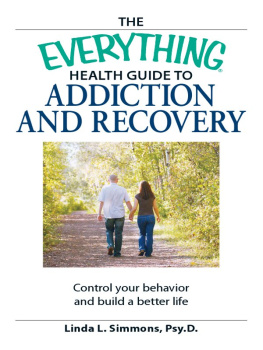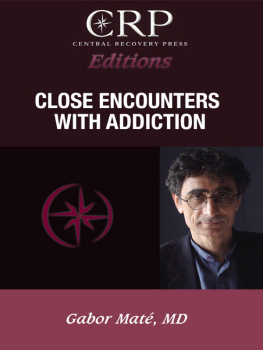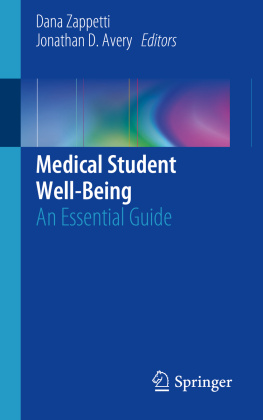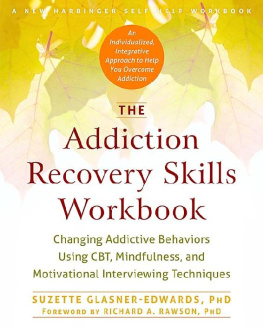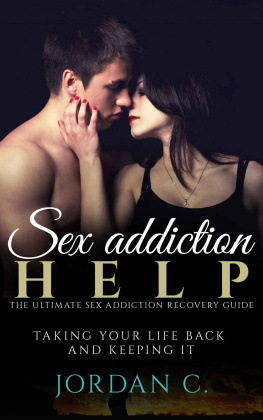FROM HARVARD
TO HELL
... AND BACK

A DOCTORS JOURNEY
THROUGH ADDICTION
TO RECOVERY
Sylvester Skip Sviokla I II
WITH KERRY ZUKUS

CENTRAL RECOVERY PRESS
LAS VEGAS
Central Recovery Press (CRP) is committed to publishing exceptional materials addressing addiction treatment, recovery, and behavioral healthcare topics, including original and quality books, audio/visual communications, and web-based new media. Through a diverse selection of titles, we seek to contribute a broad range of unique resources for professionals, recovering individuals and their families, and the general public.
For more information, visit www.centralrecoverypress.com.
2013 by Sylvester Sviokla III and Kerry Zukus
All rights reserved. Published 2013.
No part of this publication may be reproduced, stored in a retrieval system, or transmitted in any form or by any means, electronic, mechanical, photocopying, recording, or otherwise, without the written permission of the publisher.
Publisher: Central Recovery Press
3321 N. Buffalo Drive
Las Vegas, NV 89129
18 17 16 15 14 13 1 2 3 4 5
ISBN: 978-1-937612-30-6 (e-book)
Publishers Note: This is a memoir, a work based on fact recorded to the best of the authors memory. Central Recovery Press books represent the experiences and opinions of their authors only. Every effort has been made to ensure that events, institutions, and statistics presented in our books as facts are accurate and up-to-date. To protect their privacy, the names of some of the people and institutions in this book have been changed.
Cover design and interior layout by Sara Streifel, Think Creative Design
CONTENTS

Among United States adults, 12.5 percent report alcohol dependence and 2.6 percent struggle with drug dependence during their lives. That means that one out of every seven people in the US has struggled with addiction at some time. Substance abuse is clearly one of the most costly health problems in the country. National estimates of the costs of illness for thirty-three diseases and conditions ranked alcoholism second and drug disorders seventh. The social costs of addiction are wide-ranging: medical consequences, crime, lost earnings due to substance-abuse-related illness and premature death, goods or services related to crashes, fires, and criminal justice. In addition, a 2008 survey by the Substance Abuse and Mental Health Services Administration (SAMHSA) found that 11 percent of respondents with a substance-abuse problem reported suicidal thoughts in the past year, and 2 percent made a suicide attempt in the past year (compared with 3 percent and 0.3 percent of respondents without a substance-use disorder, respectively).
Yet for all the information that supports that addiction is a serious, life-threatening illness, with arguably only moderately successful treatment approaches, most people are not appropriately outraged by this fact. Reasons for the lack of concern often stem from beliefs that people with addiction do it to themselves, that people with addiction are of low moral character to begin with, and that this illness does not affect people like us. These proffered reasons for the continuing stigmatization of addicts are difficult to understand in light of decades of scientific research on addiction. That is, until we consider that most people do not read arcane medical texts. Addicted individuals are relegated to either hiding their struggles or living lives as second-class citizens. If individuals with cancer were consigned to this same social dilemma, there would be an outcry. There is rarely an outcry for individuals with addiction.
I first met Dr. Sviokla (and I purposely use his title as he has definitely earned this sign of professional respect) when I was running a weekly group for physicians with substance addiction in Rhode Island. At that time he had been in recovery for a while, wanted to start a new life, and wanted to practice medicine again. Skip told the group about his background, his medical training and career, his descent into addiction, the effects of addiction on his family, and his hopes for the future. Even among a group of physicians who kid themselves that they are impervious to emotions, Skips story was powerfully moving. Although the details of the story are gripping, the true impact of Skips journey resides in his relentless hope and optimism to manage his illness and make his life meaningful.
Whenever someone comes forth to discuss his or her struggle with an illness, there is usually a huge response from people who have been suffering in silence. The first step in increasing recognition of addiction is to have someone like Skip humanize the illness. Stories such as Skipsabout brilliant, successful people struggling with addictionare hardly rare, but they are rarely discussed in public. It is perhaps easier to think of the addicted individual as the homeless man who chooses to drink, who lies and steals and is therefore not us. Skips story demonstrates that addiction does not discriminate based on social class. In fact, he was both the homeless man on the street and the Harvard-educated doctor, athlete, father, and husband. He was the doctor who saved lives in the ER, who was engaging and brilliant, and who made others feel calm and safe and cared for. He was also the person who internally struggled with a life-threatening illness that for a period of time tore him and his family apart. His story, like any story of addiction, cannot be dismissed as not like us. And that is perhaps what makes it so powerful and so disconcerting. Elite education, wealth, social standing, and a loving family do not protect us from addiction.
My patients with addiction often feel hopeless about their futures. I have always wished that I had a book like Skips to give them. Its the story of a man who was able to face addiction head-on and overcome it. Skip is living proof that there is no reason stigma should be attached to this illness. It takes tremendous courage to admit to having addiction and to seek help. It also takes courage for someone to face his fears and to follow through with his treatment.
Dr. Sviokla has written a book for people with addiction, their families, and their friends and loved ones. Its a book we have all been waiting forone that will entertain, inspire, and enlighten. As a physician working in this field, I know that denial, secrecy, and silence are the biggest barriers to treating addiction. I strongly hope that Skips story will galvanize people who are struggling in silence to seek and receive appropriate help.
Jon E. Grant, JD, MD, MPH
Professor
Department of Psychiatry and
Behavioral Neuroscience
University of Chicago
Pritzker School of Medicine
ACKNOWLEDGMENTS
I offer amends to all those people I have not yet reached nor am likely to find. To Carole and Donald, for your teaching, example, and support I am truly grateful. To my children and grandchildren, my love and admiration for each of you floods my life daily. To Maurine with all my love, thank you for saving my life.
Because of these people and many more who have helped me, I am able to say this to those who still suffer: The journey back from hell can happen for you. I have learned that surrender does not merely cease hostilities in this war against substance abuse; it actually assures victory... and in this victory lies true joy.
Next page

